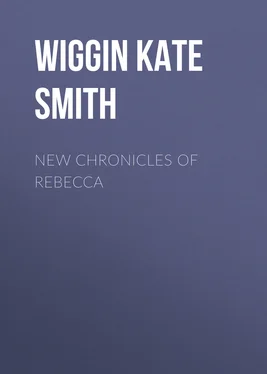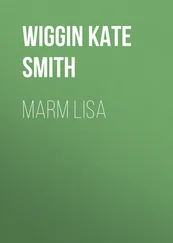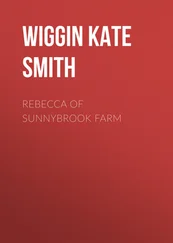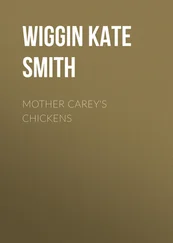Kate Wiggin - New Chronicles of Rebecca
Здесь есть возможность читать онлайн «Kate Wiggin - New Chronicles of Rebecca» — ознакомительный отрывок электронной книги совершенно бесплатно, а после прочтения отрывка купить полную версию. В некоторых случаях можно слушать аудио, скачать через торрент в формате fb2 и присутствует краткое содержание. Жанр: foreign_children, foreign_antique, foreign_prose, на английском языке. Описание произведения, (предисловие) а так же отзывы посетителей доступны на портале библиотеки ЛибКат.
- Название:New Chronicles of Rebecca
- Автор:
- Жанр:
- Год:неизвестен
- ISBN:нет данных
- Рейтинг книги:4 / 5. Голосов: 1
-
Избранное:Добавить в избранное
- Отзывы:
-
Ваша оценка:
- 80
- 1
- 2
- 3
- 4
- 5
New Chronicles of Rebecca: краткое содержание, описание и аннотация
Предлагаем к чтению аннотацию, описание, краткое содержание или предисловие (зависит от того, что написал сам автор книги «New Chronicles of Rebecca»). Если вы не нашли необходимую информацию о книге — напишите в комментариях, мы постараемся отыскать её.
New Chronicles of Rebecca — читать онлайн ознакомительный отрывок
Ниже представлен текст книги, разбитый по страницам. Система сохранения места последней прочитанной страницы, позволяет с удобством читать онлайн бесплатно книгу «New Chronicles of Rebecca», без необходимости каждый раз заново искать на чём Вы остановились. Поставьте закладку, и сможете в любой момент перейти на страницу, на которой закончили чтение.
Интервал:
Закладка:
‘Daughter of Zion, the power that hath saved thee
Extolled with the harp and the timbrel should be.’
“Sing without reading, if you please, omitting the second stanza. Hymn two seventy four, to be found on the sixty-sixth page of the new hymn book or on page thirty two of Emma Jane Perkins’s old one.”
II
It is doubtful if the Rev. Mr. Burch had ever found in Syria a person more difficult to persuade than the already “gospel-hardened” Jacob Moody of Riverboro.
Tall, gaunt, swarthy, black-bearded—his masses of grizzled, uncombed hair and the red scar across his nose and cheek added to his sinister appearance. His tumble-down house stood on a rocky bit of land back of the Sawyer pasture, and the acres of his farm stretched out on all sides of it. He lived alone, ate alone, plowed, planted, sowed, harvested alone, and was more than willing to die alone, “unwept, unhonored, and unsung.” The road that bordered upon his fields was comparatively little used by any one, and notwithstanding the fact that it was thickly set with chokecherry trees and blackberry bushes it had been for years practically deserted by the children. Jacob’s Red Astrakhan and Granny Garland trees hung thick with apples, but no Riverboro or Edgewood boy stole them; for terrifying accounts of the fate that had overtaken one urchin in times agone had been handed along from boy to boy, protecting the Moody fruit far better than any police patrol.
Perhaps no circumstances could have extenuated the old man’s surly manners or his lack of all citizenly graces and virtues; but his neighbors commonly rebuked his present way of living and forgot the troubled past that had brought it about: the sharp-tongued wife, the unloving and disloyal sons, the daughter’s hapless fate, and all the other sorry tricks that fortune had played upon him—at least that was the way in which he had always regarded his disappointments and griefs.
This, then, was the personage whose moral rehabilitation was to be accomplished by the Daughters of Zion. But how?
“Who will volunteer to visit Mr. Moody?” blandly asked the president.
VISIT MR. MOODY! It was a wonder the roof of the barn chamber did not fall; it did, indeed echo the words and in some way make them sound more grim and satirical.
“Nobody’ll volunteer, Rebecca Rowena Randall, and you know it,” said Emma Jane.
“Why don’t we draw lots, when none of us wants to speak to him and yet one of us must?”
This suggestion fell from Persis Watson, who had been pale and thoughtful ever since the first mention of Jacob Moody. (She was fond of Granny Garlands; she had once met Jacob; and, as to what befell, well, we all have our secret tragedies!)
“Wouldn’t it be wicked to settle it that way?”
“It’s gamblers that draw lots.”
“People did it in the Bible ever so often.”
“It doesn’t seem nice for a missionary meeting.”
These remarks fell all together upon the president’s bewildered ear the while (as she always said in compositions)—“the while” she was trying to adjust the ethics of this unexpected and difficult dilemma.
“It is a very puzzly question,” she said thoughtfully. “I could ask Aunt Jane if we had time, but I suppose we haven’t. It doesn’t seem nice to draw lots, and yet how can we settle it without? We know we mean right, and perhaps it will be. Alice, take this paper and tear off five narrow pieces, all different lengths.”
At this moment a voice from a distance floated up to the haymow—a voice saying plaintively: “Will you let me play with you, girls? Huldah has gone to ride, and I’m all alone.”
It was the voice of the absolutely-without-guile Thirza Meserve, and it came at an opportune moment.
“If she is going to be a member,” said Persis, “why not let her come up and hold the lots? She’d be real honest and not favor anybody.”
It seemed an excellent idea, and was followed up so quickly that scarcely three minutes ensued before the guileless one was holding the five scraps in her hot little palm, laboriously changing their places again and again until they looked exactly alike and all rather soiled and wilted.
“Come, girls, draw!” commanded the president. “Thirza, you mustn’t chew gum at a missionary meeting, it isn’t polite nor holy. Take it out and stick it somewhere till the exercises are over.”
The five Daughters of Zion approached the spot so charged with fate, and extended their trembling hands one by one. Then after a moment’s silent clutch of their papers they drew nearer to one another and compared them.
Emma Jane Perkins had drawn the short one, becoming thus the destined instrument for Jacob Moody’s conversion to a more seemly manner of life!
She looked about her despairingly, as if to seek some painless and respectable method of self-destruction.
“Do let’s draw over again,” she pleaded. “I’m the worst of all of us. I’m sure to make a mess of it till I kind o’ get trained in.”
Rebecca’s heart sank at this frank confession, which only corroborated her own fears.
“I’m sorry, Emmy, dear,” she said, “but our only excuse for drawing lots at all would be to have it sacred. We must think of it as a kind of a sign, almost like God speaking to Moses in the burning bush.”
“Oh, I WISH there was a burning bush right here!” cried the distracted and recalcitrant missionary. “How quick I’d step into it without even stopping to take off my garnet ring!”
“Don’t be such a scare-cat, Emma Jane!” exclaimed Candace bracingly. “Jacob Moody can’t kill you, even if he has an awful temper. Trot right along now before you get more frightened. Shall we go cross lots with her, Rebecca, and wait at the pasture gate? Then whatever happens Alice can put it down in the minutes of the meeting.”
In these terrible crises of life time gallops with such incredible velocity that it seemed to Emma Jane only a breath before she was being dragged through the fields by the other Daughters of Zion, the guileless little Thirza panting in the rear.
At the entrance to the pasture Rebecca gave her an impassioned embrace, and whispering, “WHATEVER YOU DO, BE CAREFUL HOW YOU LEAD UP,” lifted off the top rail and pushed her through the bars. Then the girls turned their backs reluctantly on the pathetic figure, and each sought a tree under whose friendly shade she could watch, and perhaps pray, until the missionary should return from her field of labor.
Alice Robinson, whose compositions were always marked 96 or 97,—100 symbolizing such perfection as could be attained in the mortal world of Riverboro,—Alice, not only Daughter, but Scribe of Zion, sharpened her pencil and wrote a few well-chosen words of introduction, to be used when the records of the afternoon had been made by Emma Jane Perkins and Jacob Moody.
Rebecca’s heart beat tumultuously under her gingham dress. She felt that a drama was being enacted, and though unfortunately she was not the central figure, she had at least a modest part in it. The short lot had not fallen to the properest Daughter, that she quite realized; yet would any one of them succeed in winning Jacob Moody’s attention, in engaging him in pleasant conversation, and finally in bringing him to a realization of his mistaken way of life? She doubted, but at the same moment her spirits rose at the thought of the difficulties involved in the undertaking.
Difficulties always spurred Rebecca on, but they daunted poor Emma Jane, who had no little thrills of excitement and wonder and fear and longing to sustain her lagging soul. That her interview was to be entered as “minutes” by a secretary seemed to her the last straw. Her blue eyes looked lighter than usual and had the glaze of china saucers; her usually pink cheeks were pale, but she pressed on, determined to be a faithful Daughter of Zion, and above all to be worthy of Rebecca’s admiration and respect.
Читать дальшеИнтервал:
Закладка:
Похожие книги на «New Chronicles of Rebecca»
Представляем Вашему вниманию похожие книги на «New Chronicles of Rebecca» списком для выбора. Мы отобрали схожую по названию и смыслу литературу в надежде предоставить читателям больше вариантов отыскать новые, интересные, ещё непрочитанные произведения.
Обсуждение, отзывы о книге «New Chronicles of Rebecca» и просто собственные мнения читателей. Оставьте ваши комментарии, напишите, что Вы думаете о произведении, его смысле или главных героях. Укажите что конкретно понравилось, а что нет, и почему Вы так считаете.












